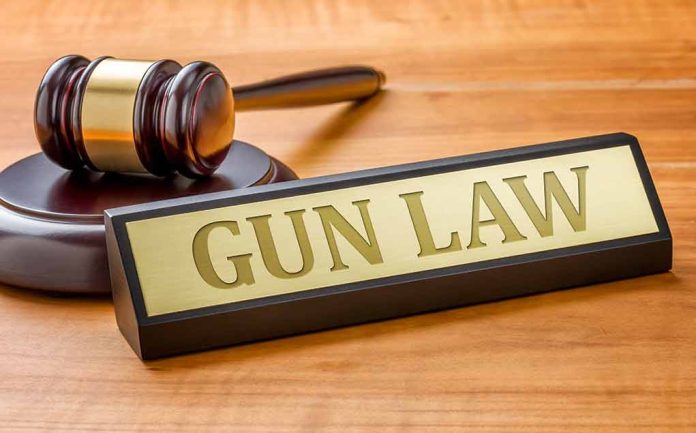
Iowa’s new law allowing armed school staff sparks debate on safety and potential risks in educational settings.
At a Glance
- Iowa passed legislation permitting school employees to carry guns on school property
- The law requires staff to obtain valid gun permits and undergo training
- Proponents argue it enhances school safety, while critics warn of increased risks
- Most large school districts in Iowa are not planning to implement armed staff policies
- The law also mandates School Resource Officers for larger districts, with opt-out options
New Law Allows Armed School Staff in Iowa
Iowa has enacted a new law that permits school employees to carry firearms on school grounds, provided they have obtained valid gun permits. The legislation, known as House File 2586, was advanced by the Iowa Senate Education Committee and signed into law by Governor Kim Reynolds. This move has ignited a heated debate about school safety and the potential risks associated with introducing more guns into educational environments.
Under the new law, teachers and school staff who wish to carry firearms must pass background checks and complete at least five training courses to obtain a permit. The legislation also applies to staff at private schools, colleges, and universities. Importantly, the identities of staff members with weapons permits will remain confidential under Iowa’s open records law.
Public comment on rules for Iowa law on armed school staffhttps://t.co/ipKz3DCyfk
— RadioIowa (@RadioIowa) August 9, 2024
Debate Over School Safety and Potential Risks
Proponents of the law argue that arming school personnel will enhance safety by enabling staff to respond swiftly in crisis situations. However, critics, including gun safety advocates and civil rights groups, contend that introducing more firearms into schools could lead to unintended consequences and increased risks.
“Research shows that arming teachers introduces new risks for gun violence in schools. Guns are the second leading cause of death among children and teens in Iowa, and in states with weaker gun laws, like Iowa, people face higher rates of gun violence.” https://www.everytown.org/press/iowa-lawmakers-are-still-advancing-dangerous-legislation-to-arm-teachers-in-schools-heres-what-you-need-to-know/
The legislation also provides qualified immunity to armed school personnel, which has raised concerns about accountability. Critics argue that this provision could make it more difficult to hold staff members responsible in the event of accidents or misuse of firearms.
School Districts’ Response and Implementation Challenges
Despite the new law, most school districts in Iowa are not planning to allow teachers and staff to carry guns. According to reports, none of the 11 largest school districts in the state are considering implementing armed staff policies this year. Cedar Rapids school board President Cindy Garlock stated that there is no interest in arming staff in her district.
“Most school districts contacted by The Gazette do not plan to allow teachers and staff to carry guns, despite the new law. None of the 11 largest school districts in Iowa are considering allowing armed staff this year.” https://www.thegazette.com/state-government/new-iowa-law-adds-legal-protections-for-armed-staff-in-schools-will-insurance-companies-take-advant/
One significant challenge facing districts considering armed staff is insurance coverage. EMC Insurance, a major provider for schools, has stated that it does not insure schools with armed teachers and staff. This has left some districts, such as Cherokee, Spirit Lake, and Interstate 35, waiting for their insurers’ decisions on coverage before making any policy changes.
School Resource Officers and Additional Safety Measures
In addition to allowing armed staff, the new law requires districts with over 8,000 students to have at least one school resource officer (SRO) or security officer per high school, though school boards can opt out of this requirement. Most large districts in Iowa already have SROs and plan to continue their programs, with Cedar Rapids, Ankeny, Council Bluffs, Davenport, Dubuque, Sioux City, Waterloo, Waukee, and West Des Moines all maintaining their existing SRO presence.
As Iowa schools navigate this new legal landscape, the debate over the balance between safety measures and potential risks associated with firearms in educational settings continues. While some view the law as a necessary step to protect students and staff, others remain concerned about the implications of introducing more guns into school environments.














